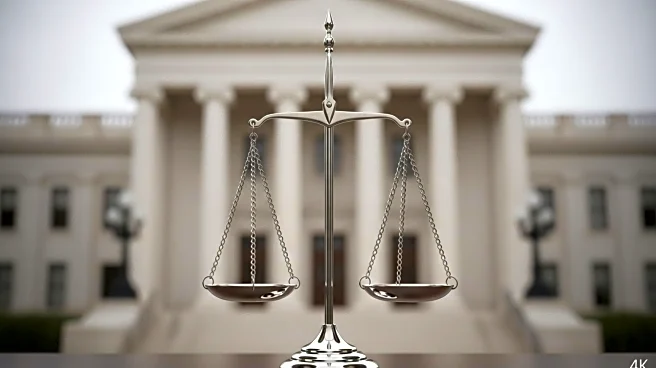What's Happening?
The Supreme Court has upheld the use of 'roving patrols' by U.S. immigration agents, allowing them to stop individuals based on appearance, language, or location. This decision has raised concerns about racial profiling, with critics drawing parallels to historical injustices. Justice Brett M. Kavanaugh's opinion suggests that ethnicity can be a relevant factor in determining the constitutionality of such stops. The ruling has sparked debate over its implications for civil rights and the potential for increased racial discrimination.
Why It's Important?
The ruling has significant implications for civil rights and immigration policy in the U.S. Critics argue that it legitimizes racial profiling, potentially leading to increased discrimination against minority communities. This decision may affect public trust in law enforcement and the judicial system, as it challenges established protections against racial discrimination. The ruling could also impact immigration enforcement practices, influencing how agents conduct stops and detentions.
What's Next?
The decision may prompt legal challenges and calls for legislative action to address concerns over racial profiling. Civil rights groups and immigration advocates are likely to push for reforms to ensure that enforcement practices do not disproportionately target minority communities. The ruling may also influence public discourse on race and equality, potentially leading to broader societal debates on these issues.
Beyond the Headlines
The ruling highlights ongoing tensions between immigration enforcement and civil rights protections. It raises ethical questions about the balance between national security and individual rights, and the role of the judiciary in shaping these policies. The decision may also affect international perceptions of U.S. immigration practices, influencing diplomatic relations and global human rights discussions.









